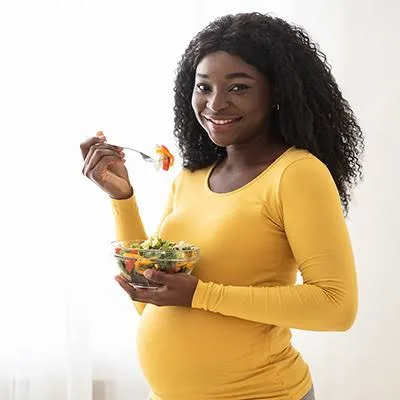Pregnancy is a time of big changes in a woman’s body, and one of the most common changes is food cravings. Some pregnant women suddenly want to eat unusual combinations like pickles and ice cream, while others might crave specific foods like chocolate, spicy dishes, or even things they didn’t like before. But why does this happen? Let’s explore some simple reasons behind these cravings.
1. Hormonal Changes
During pregnancy, a woman’s hormones change a lot. These changes can affect taste and smell, making certain foods more appealing than they were before. Hormones also influence the brain, which may explain sudden and intense food cravings.
2. Nutritional Needs
The body works extra hard during pregnancy to grow and nourish the baby. Sometimes cravings can signal what the body needs. For example:
- Craving meat or dairy might mean the body needs more protein or calcium.
- Wanting salty snacks could indicate a need for sodium.
- Desiring fruits could be linked to needing vitamins or natural sugars for energy.
However, not all cravings are linked to nutritional needs. Some might simply be about comfort or taste!
3. Emotional Factors
Pregnancy can bring a mix of emotions—happiness, anxiety, and even stress. Food cravings can sometimes be a way to feel comforted or to relieve stress. For instance, many women crave sweets like chocolate because it can make them feel good by releasing “happy” chemicals in the brain.
4. Cultural and Personal Preferences
Cravings can also depend on a woman’s background or what she’s used to eating. A favorite childhood dish or comfort food may become more appealing during pregnancy because it reminds her of happy times.
5. Changes in Taste Buds
Pregnancy can alter how food tastes. Foods that once seemed bland or boring might suddenly taste amazing, leading to cravings. Some women also experience stronger senses of smell, which can make certain foods more tempting.
6. Pica: Unusual Cravings
Sometimes, pregnant women may crave non-food items like clay, dirt, or chalk. This condition, called pica, might signal a lack of certain minerals like iron or zinc. If this happens, it’s important to talk to a doctor.
Are Cravings Always Good?
While cravings are normal, it’s important to balance them with healthy eating. Giving in to occasional treats is fine, but eating too much sugary, salty, or fried food might not be good for the mother or baby.
How to Manage Cravings
- Choose healthy options that satisfy cravings, like fruit instead of candy or baked snacks instead of fried ones.
- Stay hydrated, as thirst can sometimes be mistaken for hunger.
- Eat small, frequent meals to keep blood sugar stable and reduce intense cravings.
- Talk to a doctor if cravings feel extreme or unusual, especially for non-food items.
Conclusion
Pregnancy cravings are a natural and fascinating part of the journey. They are influenced by hormones, the body’s needs, emotions, and even cultural habits. While cravings can feel strong, enjoying them in moderation and focusing on healthy choices helps ensure a happy and healthy pregnancy for both mom and baby!


